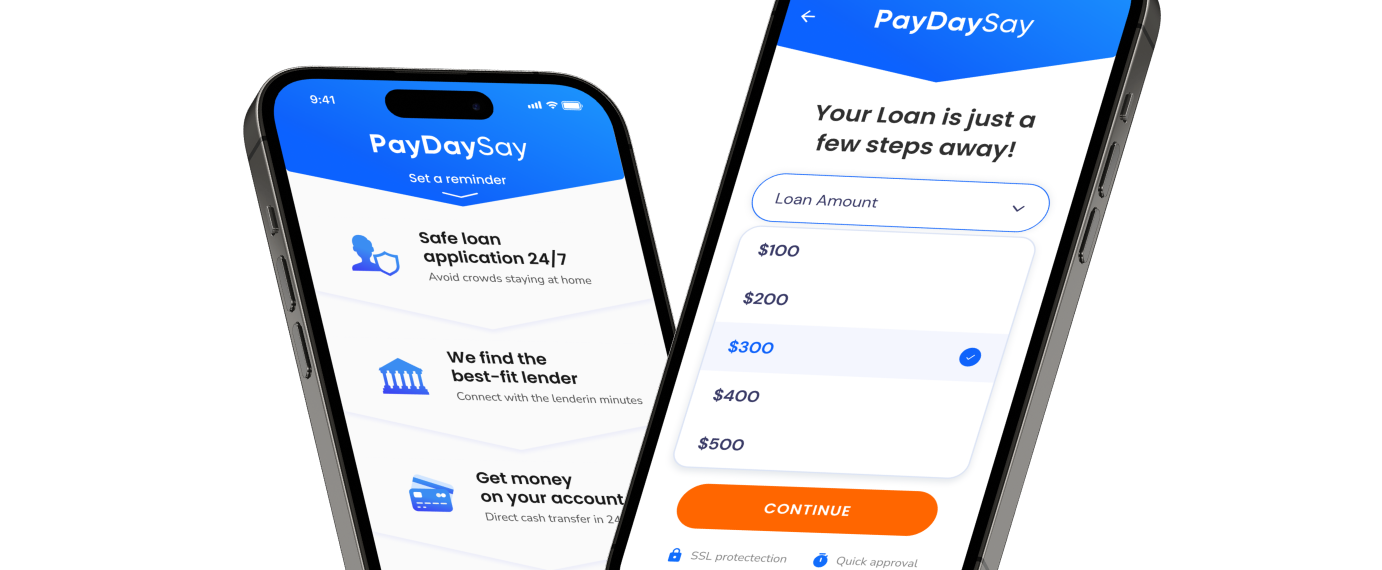Personal loans with a co-signer can help to get a beneficial option for borrowers needing financial assistance.
In addition, individuals can increase their chances of approval and secure better loan terms if they consider using a co-signer. Mainly, it has to be someone typically with several years of credit history and income stability.
This article will help you find the best one you can use to get personal loans. We will explore how to apply for loans with a co-signer, what risks it involves, and the alternatives.
So, let’s look at the top six personal loan options with a co-signer available in July 2025.
Best personal loans with a benefactor in July 2025
Best Personal Loans With a Cosigner Comparison
What is a co-signer?
A cosigner is a person that decides to take responsibility for a loan alongside the borrower. They usually have high credit and steady income. The cosigner provides extra security for the lender. If you can’t pay off your loan early, the guarantor has to. Having a cosigner is useful for borrowers with poor credit or limited history. It boosts their chances of approving a loan and may lead to better loan terms. In short, a guarantor is someone who helps you have a loan. Cosigner vouches for you and promises they will pay off the loan if you cannot.
To the best of our knowledge, the best option for individuals with low credit is to obtain a loan with a guarantor. A cosigner can help you get a loan and secure the best rates. However, if finding a guarantor is not possible, alternative options like credit builder or payday app alternative loans may be considered.
You should know that some lenders, payments from a Wells Fargo, offer personal loans with quick approval. In addition, they are good to receive the loan proceeds as early as the next business day. While these options can help manage personal finance, you should make timely payments to avoid any negative impact on your credit score.
What’s the difference between a co-signer and a co-borrower?
The main distinction lies in their level of responsibility and ownership of the loan. A co-signer is someone who agrees to take responsibility for the loan. A cosigner is not a primary borrower and does not have ownership rights to the loan or the financed asset. However, they are equally responsible for repaying the loan if the primary borrower defaults.
A co-borrower is a joint applicant who shares ownership and responsibility for the loan. Both co-borrowers have equal rights and are obligated that the loan will be repaid. Unlike a guarantor, co-borrowers typically have a direct interest in the loan and may benefit from the financed asset.
When to Use a Co-signer vs. Co-borrower
The decision to use a co-signer or co-borrower depends on the specific circumstances and the individuals’ goals. Here are some scenarios where each option may be more suitable:
Use a guarantor when.
- Limited credit history. A co-signer may help strengthen the loan application. It is great if the primary borrower has a limited history.
- Poor credit score. When the primary borrower has a poor credit score, a guarantor with a strong credit profile can increase the chances of loan approval and secure better terms.
- Lower interest rates. Adding a cosigner with a high credit score can help secure a lower interest rate on the loan.
Use a co-borrower when.
- Joint ownership. If both parties involved in the joint loans want to share ownership of the financed asset, such as a car or a house, a co-borrower arrangement allows for equal ownership.
- Shared financial responsibility. Co-borrowers are equally responsible for paying off the loan, making it suitable for situations where both parties have the financial capacity to contribute to the debt.
- Enhanced loan eligibility. If one borrower’s creditworthiness is insufficient, adding a co-borrower with a stronger financial profile can improve the chances of loan approval.
When is a co-signer a good idea?
A cosigner can be a good idea in various situations where the primary borrower may face challenges obtaining personal loan funds independently. Here are some scenarios where having a cosigner can be beneficial.
- Poor credit score. A guarantor with a higher credit score can offset the risk and improve the likelihood of loan approval. It is good when the primary borrower has a low credit score. Lenders сфт offer more favorable loan terms, such as lower interest rates, with a guarantor.
- Insufficient income. If the primary borrower’s income is inadequate to meet the lender’s requirements, a cosigner with a stable income can provide the necessary reassurance and increase the chances of loan approval.
- Desire for better loan terms. Even if the primary borrower qualifies for a loan independently, having a guarantor with good to excellent credit can help secure more favorable loan terms. It includes lower interest rates, large loan amounts, or extended repayment periods.
- Self-employment or freelancing. Individuals with non-traditional income sources (self-employment or freelancing), may find it beneficial to have a guarantor. They can strengthen their application and increase the chances of approval.
Risks of Using a Co-signer
While using a cosigner can provide several benefits, knowing the risks is important (e.g., lower your credit score). Here are some potential risks of using a cosigner.
- Damaged Relationships. If the primary borrower cannot make loan payments, the relationship with the cosigner can be strained. The cosigner may be obligated to repay a loan, leading to financial strain and potential conflict.
- Credit Impact. Late or missed payments by the primary borrower can negatively impact both the borrower’s and the cosigner’s credit scores. Any negative activity on the loan could be reflected on both parties’ credit reports, making it crucial for the primary borrower to make timely payments.
- Financial Obligation. The benefactor becomes responsible for the loan if the person who got the loan defaults to pay it off. If the primary borrower cannot fulfill the repayment obligations, the burden falls on the benefactor, potentially leading to financial hardship.
- Limited Financial Flexibility. Being a cosigner can limit their ability to obtain credit for themselves. Lenders may consider the cosigned loan as a liability, affecting their debt-to-income ratio and potentially impacting their ability to qualify for a personal loan in the future.
- Legal Consequences. If the primary borrower defaults and the lender pursues legal action, the benefactor may face legal consequences, including wage garnishment or asset seizure.
How to apply for a personal loan with a cosigner
Applying for a personal loan is a straightforward process. By following the proper steps and providing the necessary documentation, borrowers can increase their chances of loan approval and secure better loan terms.
Here’s a brief guide on how to navigate the application process when seeking a personal loan with a guarantor and apply for a loan.
1. Check Your Credit
Before applying with a co-signer, a soft credit check is essential. You can request a copy of your history online or apply to a local bureau. Then, you can assess your credit score to understand your financial standing. Lenders typically have a minimum credit score requirement you need for loan approval. A cosigner’s presence can help you not to drop your credit score. However, knowing where you stand before proceeding with the application process is still important.
2. Prepare Your Documents
Preparing your documents is important when applying for a loan. Commonly required documents include.
- Personal identification. Provide a valid ID. It includes a driver’s license or passport.
- Proof of income. Include recent pay stubs, tax returns, or bank statements to verify your income.
- Employment verification. Submit documents that confirm your employment status. For example, you can use a letter from your employer.
- Cosigner information. Gather the guarantor’s personal identification, proof of income, and employment verification.
- Loan details. Provide details based on loan purpose, loan amount, and repayment terms are ready, as lenders will ask for this information.
3. Find the Right Lender
Finding the right lender is crucial when applying for a personal loan. Research different lenders and compare their terms, interest rates, repayment options, and eligibility criteria. Look for a lender that specifically provides personal same day loans with cosigner. Consider factors such as reputation, customer reviews, and customer service quality.
Additionally, pay attention to the lender’s requirements regarding credit scores, income levels, and loan amounts. Ensure that the lender provides trustworthy services, is reputable, and has favorable terms for both the borrower and the cosigner. Taking the time to find the right lender may help increase the chances of approval and secure a loan with favorable conditions.
4. Submit Your Application
Once you have chosen the lender, submit your application for a personal loan. Fill out the application form provided by the lender accurately and completely. Provide all the required information. It includes your details, employment information, income, and relevant financial information. Be sure to include the cosigner’s information, as required by the lender.
Check personal loan application again for errors or missing information before submitting it. Some lenders may allow you to apply online. In contrast, others may require you to visit a branch or send the application via mail. Follow the lender’s instructions for submitting the application to ensure it is received and processed promptly.
Tips for Getting a Personal Loan With a Guarantor
Securing a personal loan requires careful planning and consideration. Here are some tips to increase your chances to get approved for a loan and securing favorable terms within one business day after approval.
Make sure the cosigner’s credit and/or income are significantly better
You should ensure that the co-signer’s credit and income are significantly better than yours. Lenders typically consider the co-signer’s financial strength as a guarantee for repayment if you default on the loan. A co-signer with high credit score and stable income increases your chances to be approved for a personal loan and securing better terms, such as a lower interest rate. It’s essential to carefully select a co-signer to your loan who meets these criteria to strengthen your application.
Get pre-qualified
One important tip for obtaining a personal loan with a co-signer is to get pre-qualified. This involves approaching lenders and providing them with the necessary financial information to determine the loan amount you may qualify for.
By getting pre-qualified, you can assess your borrowing capacity. You will also find out if your co-signer’s financial strength is sufficient for the loan you need.
Pre-qualification also allows you to compare offers from different lenders. This way, you can find the one with the most favorable terms and interest rates.
Understand the risks and obligations
You should fully understand the risks and obligations involved. Make sure you and your guarantor know all the potential consequences if the loan agreement is not repaid on time. Discuss and establish clear communication regarding loan responsibilities and expectations.
Additionally, consider the impact on your relationship with the benefactor, as financial matters can sometimes strain personal connections. Being well-informed and maintaining open communication can help mitigate risks and ensure a smooth borrowing experience with a cosigner.
Consider alternatives
While obtaining a loan can be helpful, it’s important to consider alternative options before proceeding. Explore other avenues, such as improving your credit score, increasing your income, or seeking alternative lending sources.
By exploring different options, you may find a solution that doesn’t require a cosigner. In some cases, it can help you maintain financial independence and avoid potential complications. However, if a benefactor is still necessary, make sure to choose someone who understands the risks and obligations involved and has the financial stability to support your application.
Alternatives to Personal Loans With Co-signer
Alternative options exist when personal loans with a guarantor are not feasible or preferred. Here are some alternatives to personal loans with a guarantor.
- Secured Loans. If you have collateral such as a vehicle, property, or savings, you can explore secured loans that use your assets as security for the loan. It reduces the lender’s risk and may increase your ability to get approved for a personal.
- Credit Unions. Credit unions are non-profit financial institutions that offer competitive loan rates and flexible terms. They often have a more personalized approach. Credit unions may work with borrowers with limited history or lower credit scores.
- Family or Friends Loans. Consider borrowing from family or friends who may be willing to lend you a personal loan without a co-signer. However, ensure clear communication, transparency, and a formal agreement to avoid potential conflicts.
- Credit Card Advances. A credit card advance may be an option if you need a smaller amount of money. However, be cautious of high-interest rates and consider repayment terms.
- Online Personal Loans. Many lenders offer unsecured personal loans that don’t require collateral or a benefactor. These loans often have a quick application process and competitive interest rates.
How to compare personal loans if you have a cosigner
You consider various factors to ensure you make an informed decision. Especially when selecting online lenders. Here is a list of factors to consider when comparing personal loans with cosigners.
- Interest Rates. Compare the interest rates offered by different lenders. For example, lower rates will save you money over the life of the loan.
- Loan Term. Review the repayment terms, such as the loan length and the frequency of payments. Choose terms that align with your financial situation and goals.
- Fees and Charges. Look for any origination fees, application fees, or prepayment penalties associated with the loan. These can impact the overall cost of the loan.
- Loan Amounts. Consider the minimum and maximum loan amounts offered by each lender. Ensure they meet your borrowing needs.
- Credit Requirements. Understand the credit score and credit history requirements set by each lender. Some lenders may have specific criteria for both the borrower and the guarantor.
- Repayment Flexibility. Assess the flexibility of the loan repayment options. For example, look for features such as deferment or forbearance in case of financial hardship.
- Customer Reviews and Reputation. Research the lender’s reputation and read customer reviews to gauge their customer service and overall experience.
Methodology for Selecting the Best Personal Loans With a Guarantor
Selecting personal loans with a benefactor involves a systematic methodology to make an informed decision. The process typically includes the following.
- Researching and compiling a list of potential lenders.
- Evaluating terms, interest rates, fees, and repayment options.
- Checking eligibility criteria, including credit score requirements.
- Considering additional features like guarantor release options and customer reviews.
- Comparing the pros and cons of each loan offer.
- Weighing the lender’s reputation, customer service, and overall satisfaction.
By following this methodology, borrowers can compare and analyze personal loan offers with cosigners to choose the option carefully. It should be the best for credit history that meets their needs and offers favorable terms.













 on your homescreen
on your homescreen